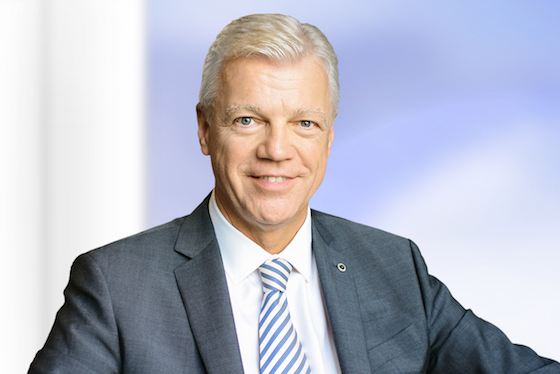If the name of Steigenberger Hotels’ new soft brand, Maxx by Steigenberger, sounds vaguely familiar, it’s because the company employed it 30 years ago. Back then, as CEO Thomas Willms described it, it was Anglo-American ’60s style – a “Humphrey Bogart sort of fan under the roof” brand of new-builds and strict standards (it didn’t last long).
The upscale soft brand, introduced this month, fills a gap in Deutsche Hospitality’s brand portfolio of luxury and upper-upscale Steigenberger Hotels and Resorts, upper mid-scale urban InterCityHotel and lifestyle Jaz in the City, and has Willms hitting the ground running in his new role; he joined Steigenberger in June 2017 as chief operating officer, from a regional SVP role at Starwood, and became CEO in January.
Willms, who spoke with HOTELS at the International Hotel Investment Forum in Berlin in early March, said the soft brand gives the company the opportunity to sign deals that previously were outside the boundaries of its brand standards. “Now with this brand we have less rigid standards, so we obviously want to sign new deals, and we didn’t have a franchise brand so far,” Willms said. Between the Steigenberger brand’s age, Jaz’s youth and minimal properties, and IntercityHotels’ airport and railway station locations, franchising was difficult. With the franchise-friendly Maxx, “we are more open to family businesses, to partners,” he said.

The company describes the Maxx brand as “simplicity unleashed”: with premium linens, breakfast and coffee, fitness and free WiFi, along with an energetic and multi-tasking lobby space that is aiming to hop onto the flexible workspace trend. Plans are to expand within Germany and international markets, but no locations have been announced yet.
Willms is not looking to convert one of the company’s more than 100 existing properties, however. “We are looking for new business, and the first couple of deals will not be any existing ones,” he said. But Maxx may provide an alternative to an interested owner that doesn’t fit into any of the other brands. (And while he acknowledges another gap in Deutsche’s brand family – budget – Willms said there are no plans to introduce one at this point.)
The flexibility in the physical spaces that a soft brand like Maxx allows means that the company will also be flexible in how it defines a public workspace, Willms said. “The standard is not defined by square meters. We just want to transform the lobby into workspaces, coffee culture, bars, lighting. This is very important to us that you get the impression of the brand DNA in the lobby, because 100% of guests obviously cross the lobby, but only a few find a room.” Outdated business centers can be transformed into more social spaces, but that may require some education with the family businesses that could be attracted to the Maxx brand, Willms said.
Role of technology
Willms described Deutsche Hospitality as “still in the infancy of big data and of CRM – that was never strategically the big direction, until two years ago.” But with 100 hotels online and a goal of growing to 150, “the company decided we need to know our customers better.” The company has launched a cross-platform CRM system. While it doesn’t have a loyalty program yet, Willms said, that’s next on the agenda, perhaps focusing more on recognition. “The point thing is not so important,” he said.
Overall, Willms said the company is in good shape for the long term. “We have a good mixture of leases, management and franchise,” he said, and brands like Intercity that work well in downturns – just in case one appears after a nine-year upcycle. And with the growth of India’s and China’s middle classes, particularly, “this industry will never go away.”
